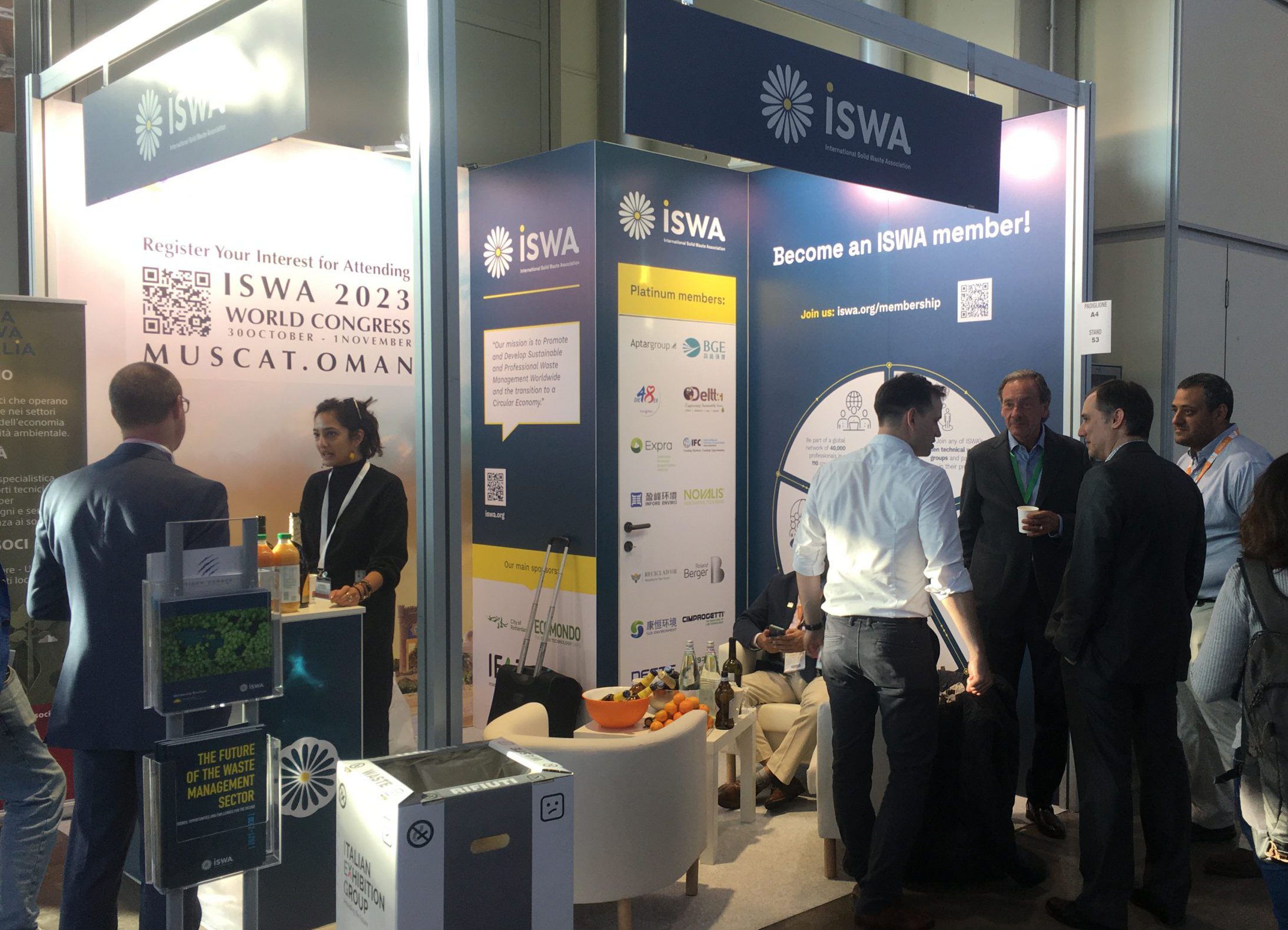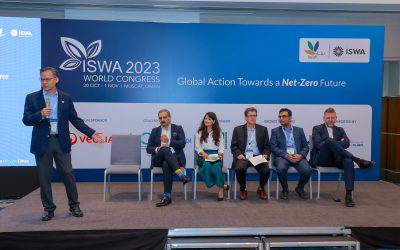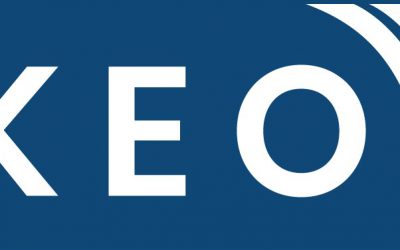ISWA was present at the 25th Edition of Ecomondo: The Green Technology Expo from the 7th until the 11th of November held in Rimini, Italy. As has been a common occurrence in the past years, ISWA had a booth at the Expo to interact with existing members, promote membership and disseminate technical reports and publications.
The expo was big and banging, many companies in the sector had their exhibitions there and there was a record attendance in visitors according to the organisers.
At the booth we had the visits of familiar faces but also curious newcomers that wanted to know more about ISWA and how to join the community. The engagement of the GS Staff and the setup of some events as networking drinks facilitated the task.
We also had the opportunity of hosting a side-event at the fair that had the participation of ISWA members and guests.
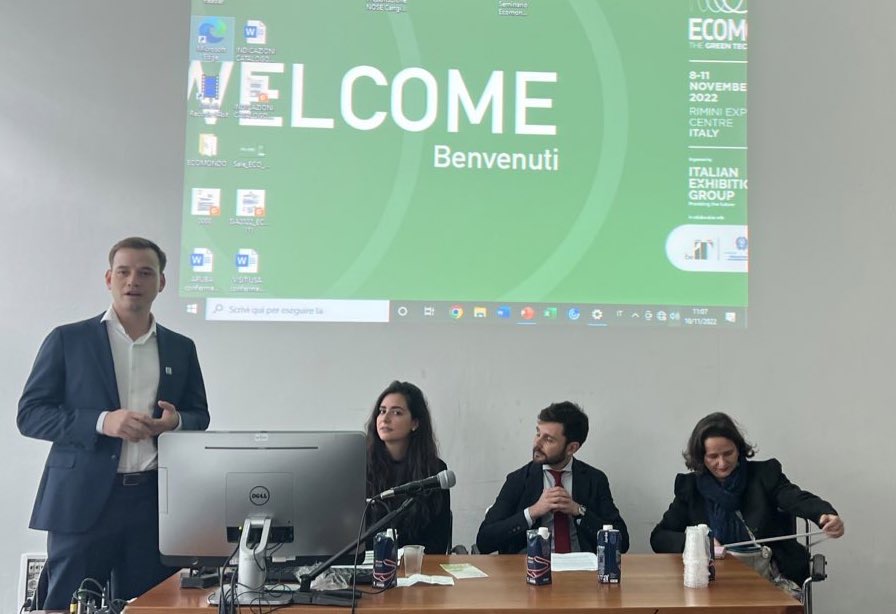
We had participation on the table with speakers from CONAI (Consorzio nazionale imballaggi) , EXPRA (Extended Producer Responsibility Alliance), FEAD (European Waste Management Association) and Avfall Sverige (Swedish Waste Management Association and ISWA National Member).
The topic of this roundtable was inspired by the results of the latest webinar of the ISWA European Group, where we discussed the implications, challenges, and opportunities of harmonisation and standarisation of waste collection. The issue is a hot topic in the EU right now, the current recycling targets established in the context of the revision of the Waste Framework Directive and the Circular Economy Action plan demand adaptations and improvements in the system to meet them.
Some of the issues discussed below and to be interpreted as anecdotical insights:
Some type of harmonisation is good, however should be adapted to local contexts using clear labelling and when possible and adopting the best available technologies. This can facilitate the adoption for members states and the subnational entities who operate in this common objective.
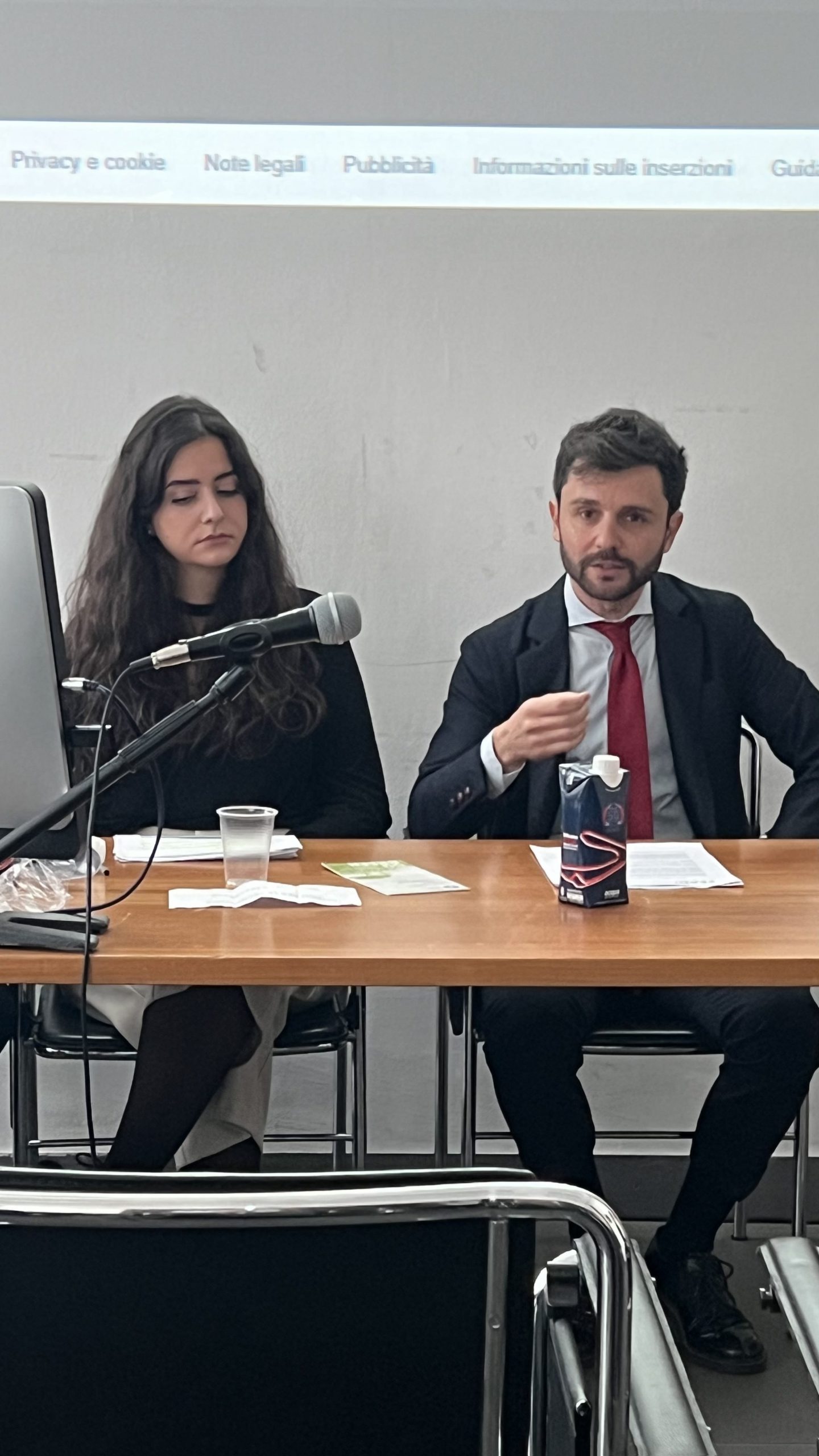
Standarisation should follow as the next step and it has a key role in providing the processes that every industry implicated in secondary raw materials needs to ensure the quality of their feeds and outputs. This is an important step towards achieving a real integration of the value chain of secondary raw materials with the primary sources’ material flows. In the same way that we establish clear grades of qualities and standards for the virgin materials we use in a range of applications we should do for secondary raw materials to effectively getting as much as we can into a circular flow of materials.
Standarisation is also important in terms of waste sorting streams and quality as this will also enable more integration in the recycling industry and enable more business opportunities. Collaboration between producers, packers and fillers as well as municipalities and waste management companies will give the best and most effective results for both citizens and the industry.
What do you think about these developments? Are we ready to take this step? Should some special considerations come first before this transition?
Join us in the next ISWA EU Group Webinar to be in touch with the latest development of EU waste related policies.

